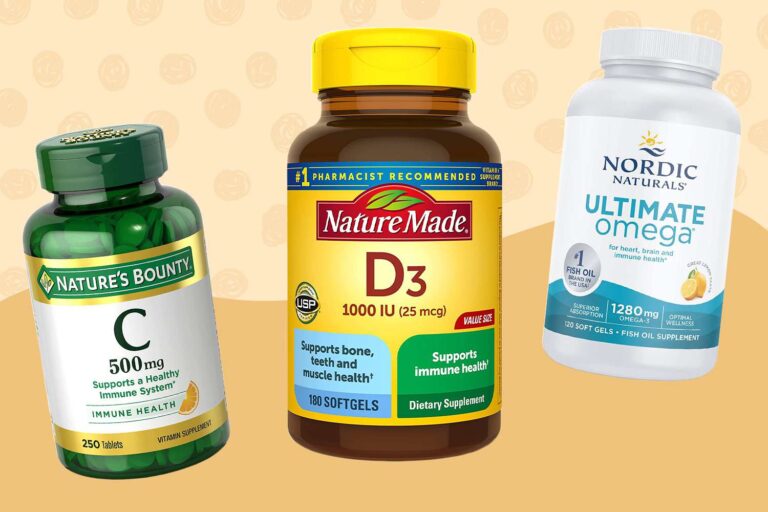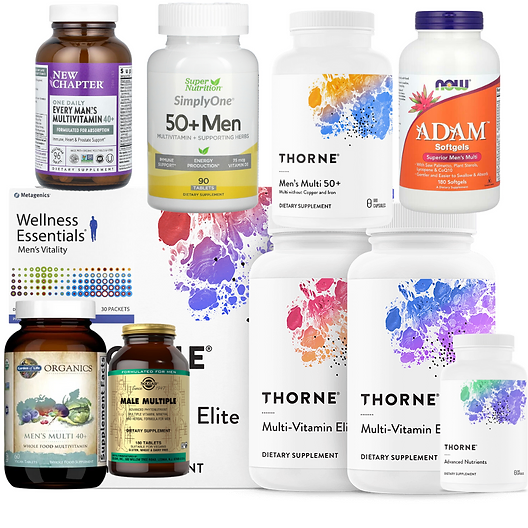What Are Vitamins and Supplements?
Vitamins and supplements are substances added to our diet in order to improve our health, such as vitamins, minerals, or phytochemicals.
Evidence regarding supplements’ health benefits remains mixed, so they should never replace eating healthily. Vitamins are organic compounds produced naturally by our bodies to aid with various metabolic processes and should therefore only ever be taken in small doses.
Water-Soluble Vitamins
Water-soluble vitamins include Vitamin C and all the B-complex vitamins (thiamine, riboflavin, niacin, pantothenic acid, pyridoxine biotin folate and cobalamin). Because water dissolves these vitamins quickly upon absorption in the digestive tract, any excess is excreted through urine without storage in your body. Water-soluble vitamins are crucial to normal cell growth and function as well as immune health, energy production and other aspects of wellbeing.
The eight B-complex vitamins serve an essential function in many enzyme-catalyzed reactions that support metabolic processes within the body, acting as coenzymes in many chemical reactions and helping with neurotransmitter production such as serotonin and gamma-aminobutyric acid which play crucial roles in mood regulation and cognitive performance.
Water-soluble vitamins have long been recognized for their benefits to health skin, immune function and red blood cell formation – particularly useful in pregnant women’s diets and elderly care environments. They’re especially advantageous to pregnant mothers, infants and elderly people.
Water-soluble vitamins do not pose any known toxicity risks, though taking doses over 100 times the recommended daily allowance of niacin can result in rare forms of liver damage called hepatocellular necrosis. Niacin can be found in foods like meat, fish, dairy products, nuts and seeds; most people get enough from diet alone but may require supplements depending on dietary restrictions; consulting a dietician can assist in finding sources and quantities.
Fat-Soluble Vitamins
Fat-soluble vitamins A, D, E and K dissolve in fat-absorbing tissues and are then taken up by the liver and stored fatty tissues until needed for use by cells in the liver or fatty tissue. Due to slower removal by kidney function, excess amounts can build up over time in your system and become harmful if left accumulating without removal by normal means.
Fatty-soluble vitamins play an essential role in many physiological functions, including immune regulation, eye health, bone formation and cell division. Fat-soluble vitamins also play a key role during key periods in life such as pregnancy, middle age and senility.
Human bodies require 13 essential vitamins: vitamins A, C, D, E and K along with B vitamins such as Thiamine (thiamin), Riboflavin (riboflavin), Niacin, Pantothenic Acid Biotin Vitamin B-6 Vitamin B12 Folate etc. A well-balanced diet is one way of getting these essential nutrients, however if a health condition makes this difficult it is possible to supplement with vitamins under medical supervision.
Remembering to consume only within safe daily intake limits when it comes to vitamins and supplements is key, particularly with fat-soluble vitamins like A, D, E and K which can build up in your system over time and cause toxicity if taken in excess.
Minerals
Minerals are inorganic elements found naturally in soil and water that are consumed by plants or eaten by animals, like humans. Your body requires calcium and sodium in larger amounts for proper functioning while your body only requires trace amounts of copper, iodine, iron, phosphorus potassium zinc sulfur etc as required for good health.
Geologists typically define minerals as inorganic substances with a defined chemical composition and ordered atomic structure that occur naturally. Nutritionists use the term to refer to essential inorganic nutrients for human health such as potassium, magnesium, and phosphate that can be found both in foods as well as supplements.
Some minerals can be identified based on their visuals or textures; table salt is one such mineral which forms crystals with distinct shapes; others, like Rhodochrosite, have unique hues or textures while some even fluoresce under ultraviolet light and emit an aromatic scent.
Some minerals are important industrially, producing products like sodium chloride (table salt), halite and borax. Gypsum and kaolin can also be used as building materials while others such as calcium carbonate (limestone), silica quartz and apatite and pyrite pyrite are mined for metals or nonmetals such as ferromanganese and chromite respectively; while rarer tellurium provides antimony and tungsten sources.
Supplements
Vitamin D and calcium from supplements help strengthen bones, while prenatal vitamins contain folic acid to prevent certain birth defects. Many varieties of supplements exist from vitamins to herbs to products like glucosamine and fish oils; pills, capsules, powders, drinks or energy bars. Supplements do not generally need to undergo rigorous testing like drugs.
Vitamins should ideally be obtained through eating a varied, well-balanced diet; however, for some individuals who may have limited dietary options or health problems, a doctor may advise taking vitamin supplements instead.
If you take vitamins or supplements, look for products bearing the United States Pharmacopeial Convention (USP) verified mark to ensure they meet certain quality standards. Alternatively, contact your physician and request a blood test to identify whether you may have deficiencies.
Vitamins should never exceed their recommended amounts as too much can be harmful. Our bodies use vitamins in small doses for various metabolic processes; most can get all their necessary vitamins through eating a well-rounded diet of fruits, vegetables, meat and dairy. Women who are pregnant or breastfeeding; those who drink excessively; people on medications which interfere with absorption; as well as people taking medications which interfere with absorption may require vitamin supplements as additional sources.







